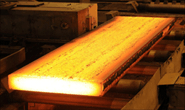Market Data

May 25, 2021
Brazil's Usiminas Postpones Upgrades to Blast Furnace No. 3
Written by David Schollaert
Usinas Siderurgicas de Minas Gerais (Usiminas) has delayed planned upgrades to its blast furnace No. 3 (BF3) by 10 months. This is the second postponement to work on BF3 by the Brazilian steelmaker since originally confirming the planned investments in mid-2019. Due the ongoing impact of COVID-19 on the Brazilian marketplace, in specific the automotive sector, and the “stable operational performance” of Ipatinga’s BF3, the company said it has now postponed the upgrades to mid-2023.
Usiminas, one of the largest flat steel producers in Latin America with an annual capacity of 9.5 million metric tons, originally announced in May of 2019 that it would invest R$1.23 billion ($306 million) to overhaul BF3. Initially planned to operate normally until 2021, the largest of Ipatinga’s furnaces with an annual capacity of nearly 2.5 million metric tons would then be idled to undergo the planned upgrades. In late-2019, the company postponed the project by 12 months due largely to the depreciation of the Brazilian currency. The latest postponement will push the commencement of BF3’s refurbishment project into mid-2022. Additionally, the company noted that cost of the expected improvements to BF3 have been revised to R$2.09 billion ($392 million) due to significant exchange devaluation and increased materials cost. Usiminas did not immediately respond or offer comment.
Back in April 2020, Usiminas idled the No. 1 and No. 2 blast furnaces indefinitely in response to the suspension of Brazil’s automotive industry due to COVID-19-driven closures. With automakers accounting for more than a third of the demand for Brazilian steel, sales for the Brazilian flat steel producer saw nearly a 50% dropoff in the second quarter of 2020. BF1 was brought back online this past August while BF2 will be restarting in June. BF3 remained operational throughout the pandemic to meet the remaining demand.
With all three furnaces at Usiminas’ Ipatinga mill slated to be online and running in the third quarter, the added production should provide further slab volumes and a much-needed lift to the company’s Cubatão rerolling facility in Brazil’s southeastern state of São Paulo.
By David Schollaert, David@SteelMarketUpdate.com







